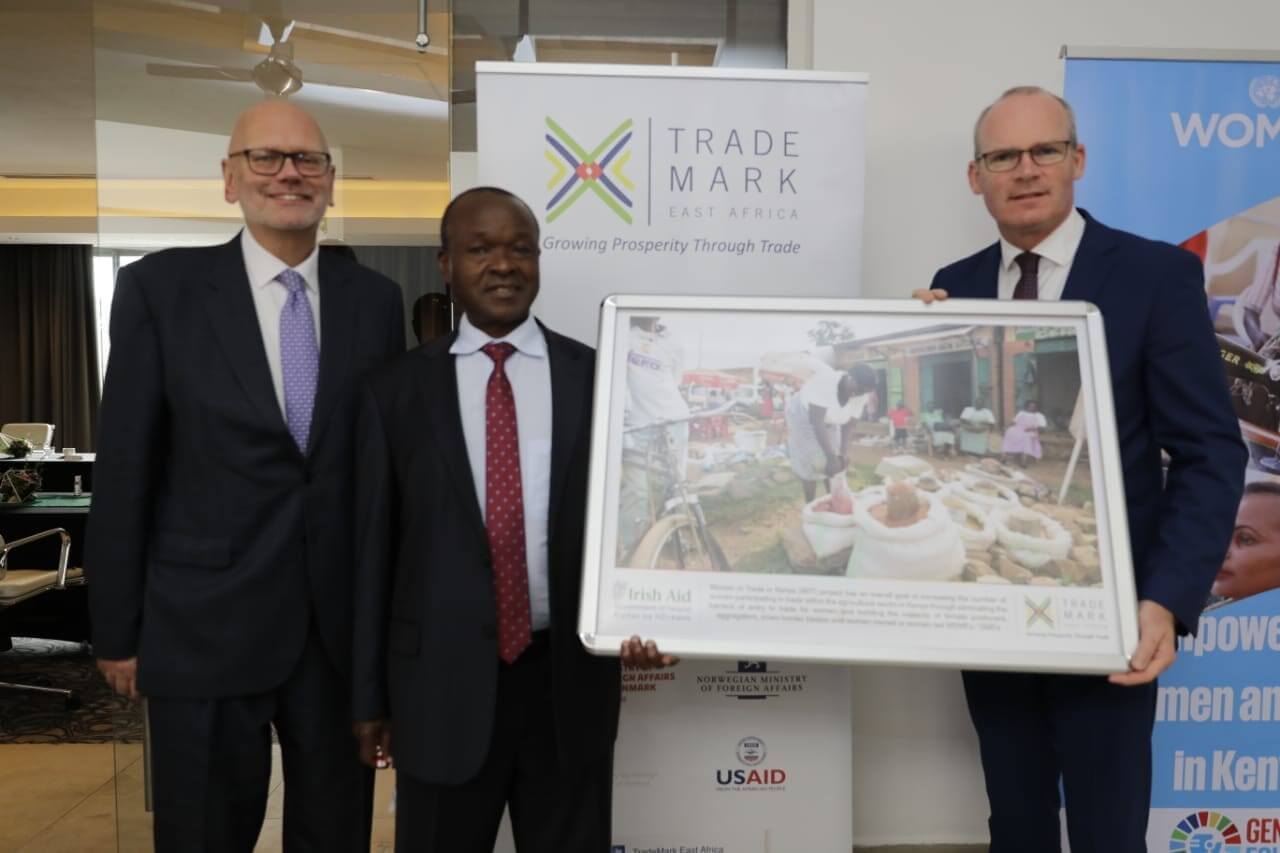TradeMark Africa (TMA) and the Ministry of Foreign Affairs of Ireland have today launched a €100,000 (approx. USD 118,000) project that contributes to increasing the number of women participating in trade within the agricultural sector in Kenya through eliminating the barriers of entry to trade for women and building the capacity of female producers, aggregators, cross-border traders and women-owned or women-led MSMEs / SMEs.
The project will leverage and strengthen on the interventions of the Women in Trade (WIT) project targeting a total of 7,000 female producers, aggregators, cross-border traders and a minimum of 35 women-owned or women-led SMEs / MSMEs within the agricultural sector. Further, the selected value chains, including avocado, mango, cassava, groundnuts, soybean and maize have been identified as having the potential to provide economic opportunities for women along the value chain.
In Kenya, agriculture makes up a large proportion of Kenya’s economy, and subsequently, Kenya’s economic opportunities. Importantly, Kenya’s established market institutions and supporting social infrastructures, suggest that agricultural trade has the potential to provide sustainable, scalable, and meaningful impact to women’s economic empowerment in Kenya.
Speaking during the launch, Jill Clements, Deputy Head of Mission and Head of Cooperation welcomes the continued partnership with TradeMark Africa focusing on women in trade as part of Ireland’s commitment to gender equality.
The project has 4 keys output areas; strengthening access to agri-markets for female aggregators and producers; increasing participation of women traders in select sectors; enhancing capacity in women-owned and women-led SMEs and MSMEs and improving the policy and regulatory environment for women in trade.
TradeMark Africa Chairman Amb. Erastus Mwencha elaborated, “Access to new regional and international markets is often dependent on access to traditional business networks, which tend to be male dominated, making it difficult for women to find new customers and identify market opportunities. The project that we have launched today will contribute to addressing the challenges that women-owned and women-led Small and Medium Enterprises (SMEs) face in accessing international market opportunities.”
Download file














